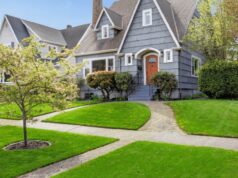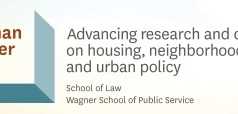USGBC’s LEED in Motion Report Reveals More Than 4.3 Million People Live and Work in LEED-Certified Buildings
New report series demonstrates breadth, momentum of green building movement
WASHINGTON, D.C. – August 14, 2013 – (RealEstateRama) — The U.S. Green Building Council (USGBC) has released its inaugural LEED in Motion report, a holistic statistical snapshot of the green building movement aimed at equipping its members with the insight to make a strong case for sustainable building activity.
The first of three reports in the LEED in Motion series, available exclusively to USGBC member companies, LEED in Motion: People and Progress examines the individuals and organizations that are driving and benefitting from green building, utilizing graphics, charts and other tools to demonstrate the breadth of the community intent on creating buildings that are better for the environment and the people who utilize them every day.
“LEED is a transformative force that works at the intersection of a variety of societal and economic interests, including the construction, real estate and environmental communities,” said Rick Fedrizzi, president, CEO and founding chair, USGBC. “The new LEED in Motion reportreflects that incredible cross-section of people — diverse in background, geography and vocation — who are working together to fulfill USGBC’s mission of a sustainably built environment within a generation.”
The first section of the report, Occupants and Industry, examines the broad community that engages with green buildings as residents and tenants — as much a part of the movement as industry practitioners. Currently, USGBC estimates that more than 4.3 million people live and work in LEED-certified buildings, while more than 6.2 million people experience a LEED-certified project every day.
The LEED Professionals section of the report considers the community of more than 186,000 LEED credential holders who are actively applying their specialized knowledge of LEED to advance the green building rating system while adding value to the firms that employ them. In particular, the report notes the top 10 U.S. states for LEED Professionals, as well as the top 10 industries in which they are employed.
The report also examines the nearly 13,000 USGBC member organizations, ranging from Fortune 100 corporations to small neighborhood businesses, representing 13 million employees and $1.8 trillion in combined revenue. People and Progress reports on the location and market sectors of these geographically and professionally diverse organizations, which are advancing green building with activities such as portfoliowide LEED certifications and participation on LEED development committees.
Additionally, the report features USGBC’s network of 77 chapters and nearly 30,000 chapter members, explaining how the network’s educational, advocacy-related and community-based activities are proving pivotal to the expansion of green building in local communities around the nation.
The report also features several project spotlights, highlighting sustainable features and achievements at projects in the medical, education and commercial real estate sectors, in addition to interviews with green building leaders.
USGBC will release the next two LEED in Motion reports, Places and Policies and Impacts and Innovation, later this year.
USGBC members can download LEED in Motion: People and Progress, by visiting http://www.usgbc.org/resources/leed-motion-people-and-progress.
Media are welcome to request a copy of the report from Jacob Kriss, USGBC Media Associate: ">.
U.S. Green Building Council (USGBC)
USGBC is committed to a prosperous and sustainable future through cost-efficient and energy-saving green buildings. USGBC works toward its mission of market transformation through its LEED green building program, robust educational offerings, a nationwide network of chapters and affiliates, the annual Greenbuild International Conference & Expo, the Center for Green Schools and advocacy in support of public policy that encourages and enables green buildings and communities. For more information, visit usgbc.org, explore the Green Building Information Gateway (GBIG) and connect on Twitter, Facebook and LinkedIn.















